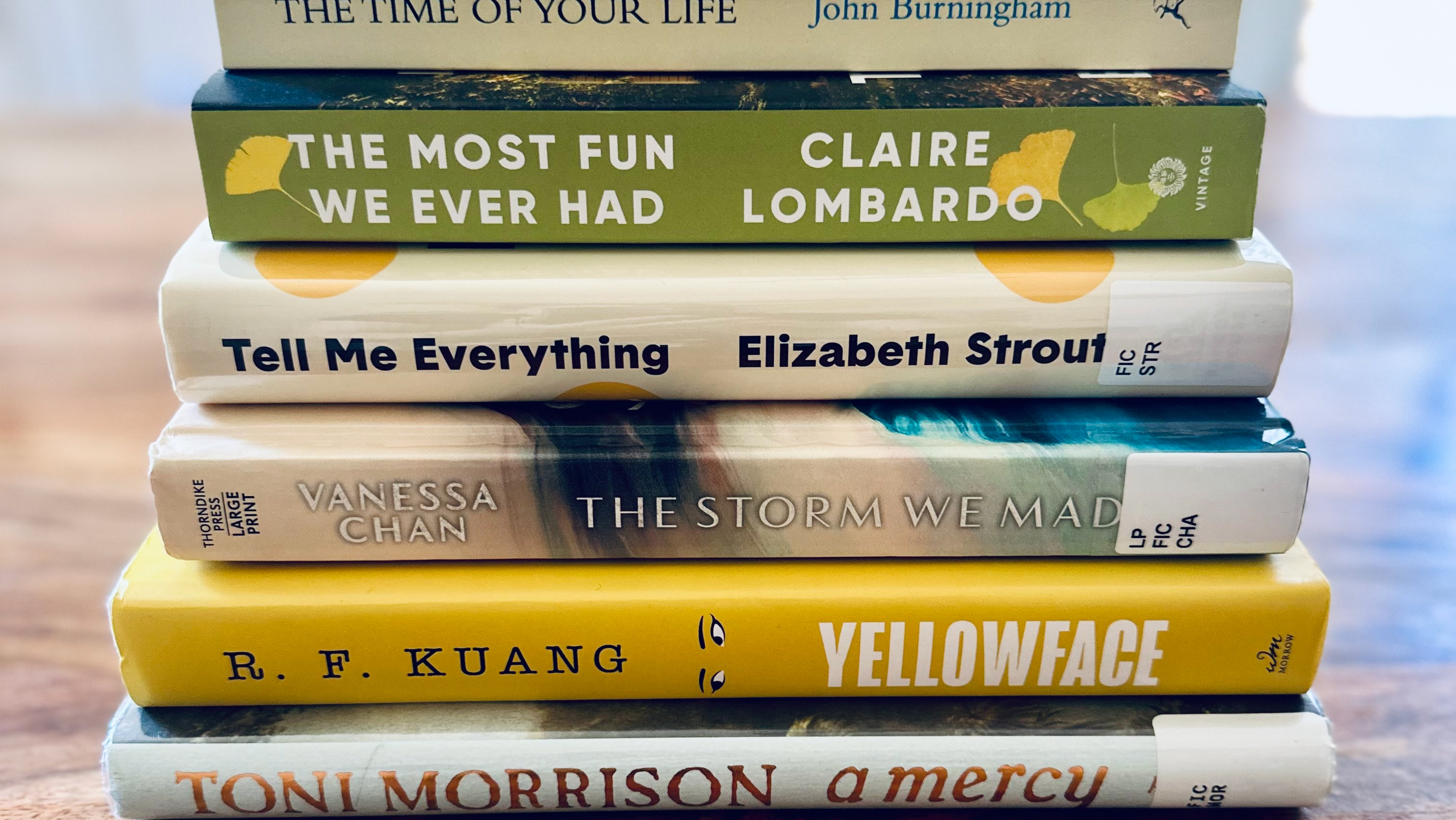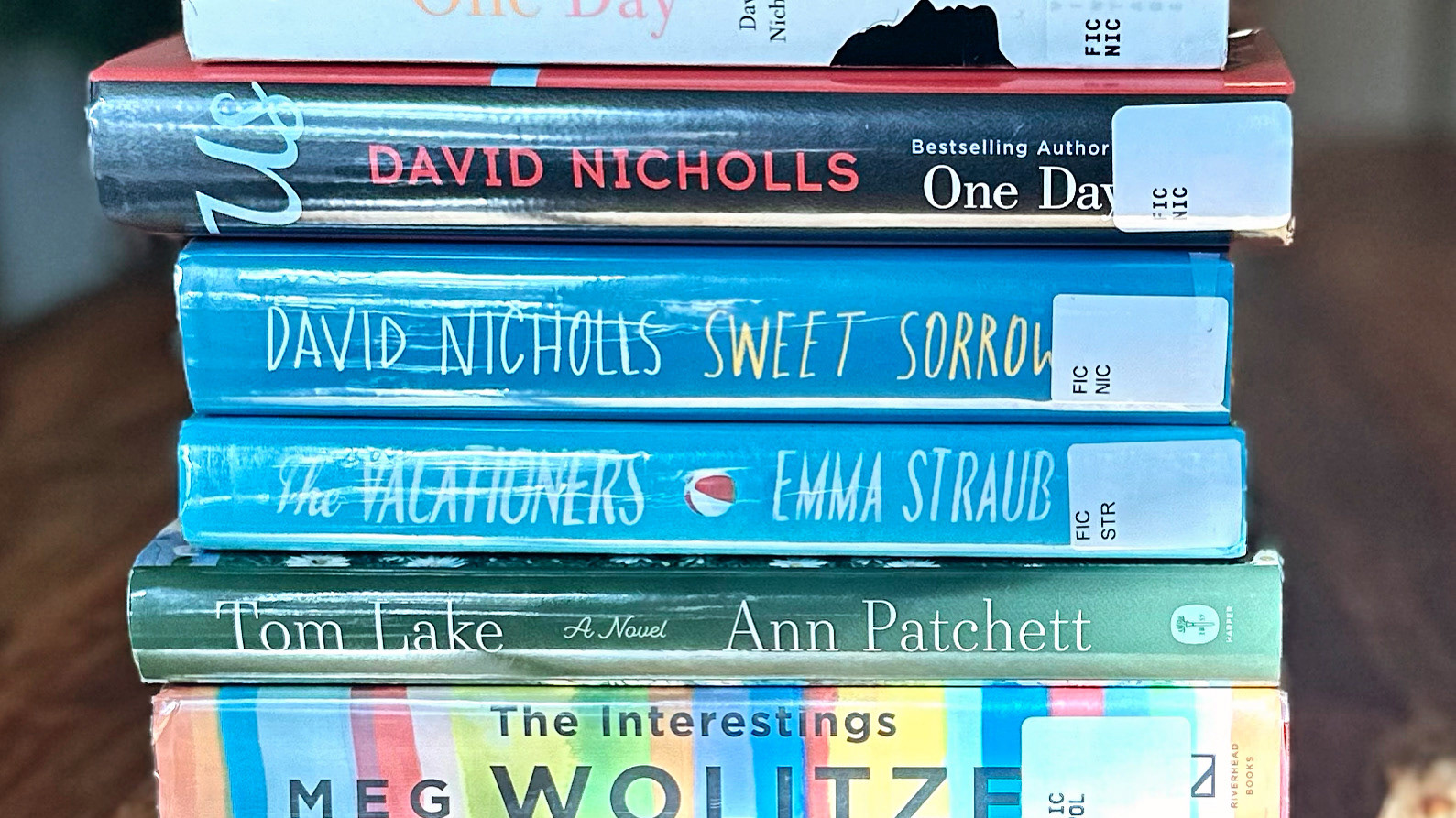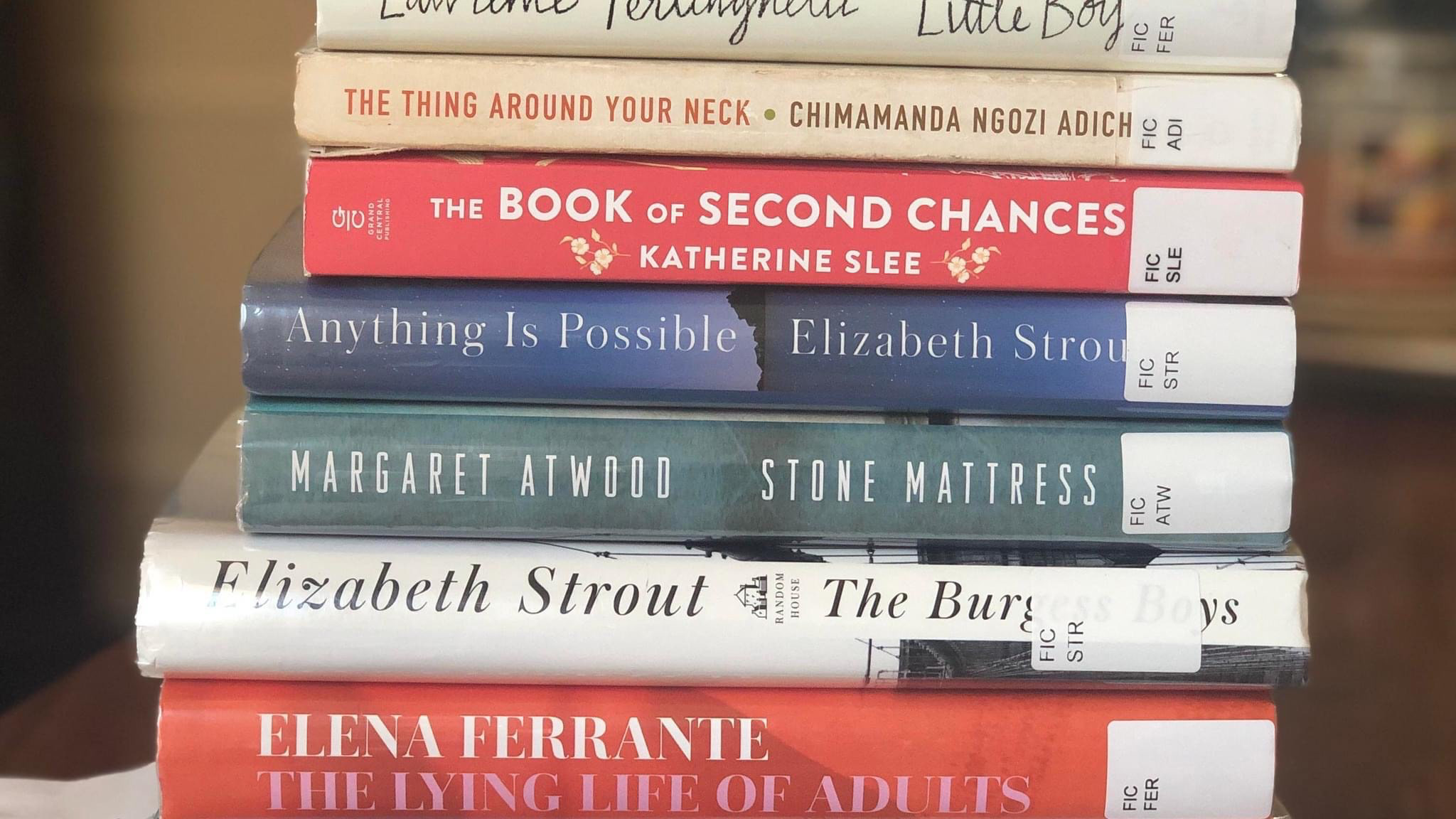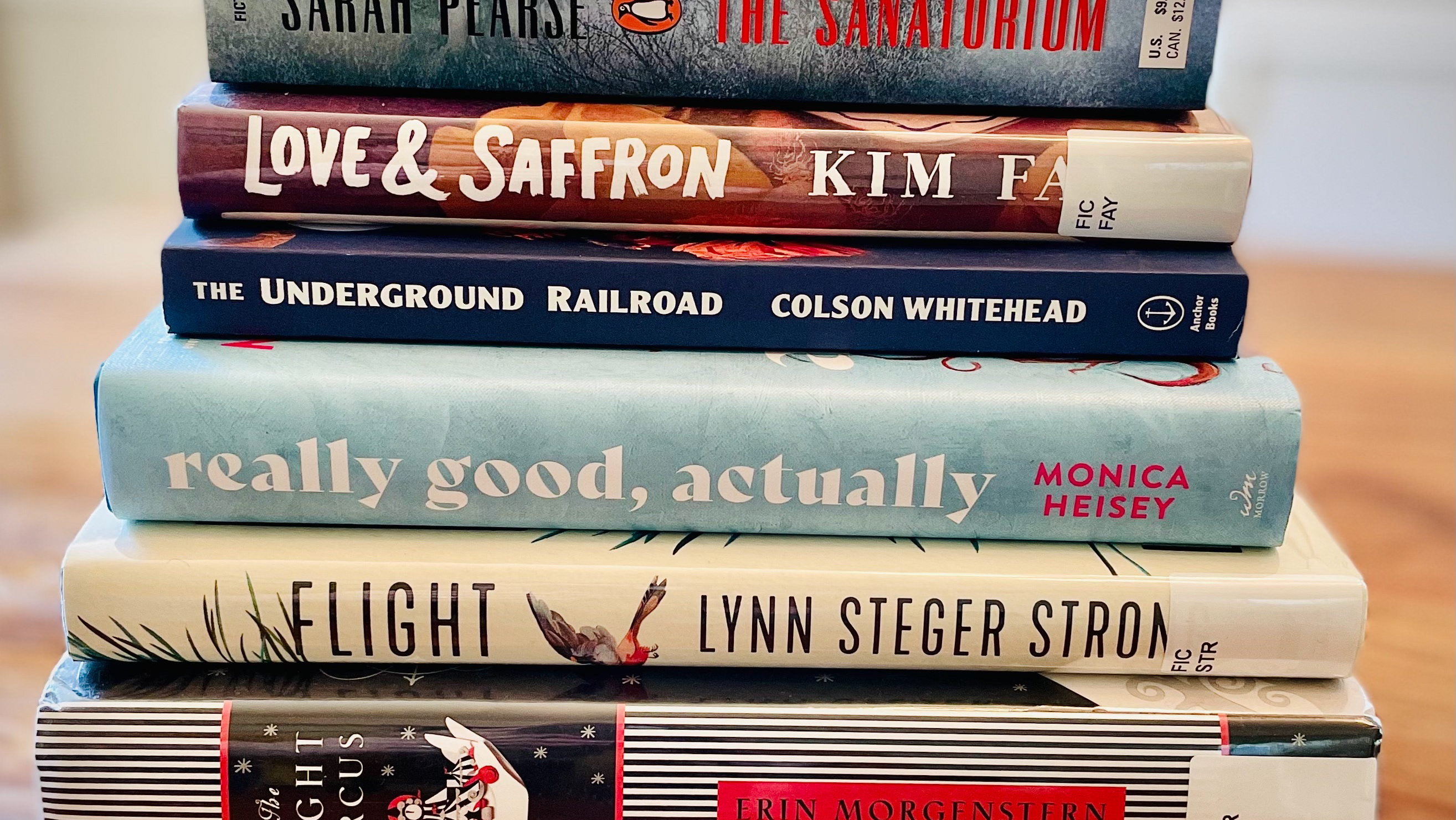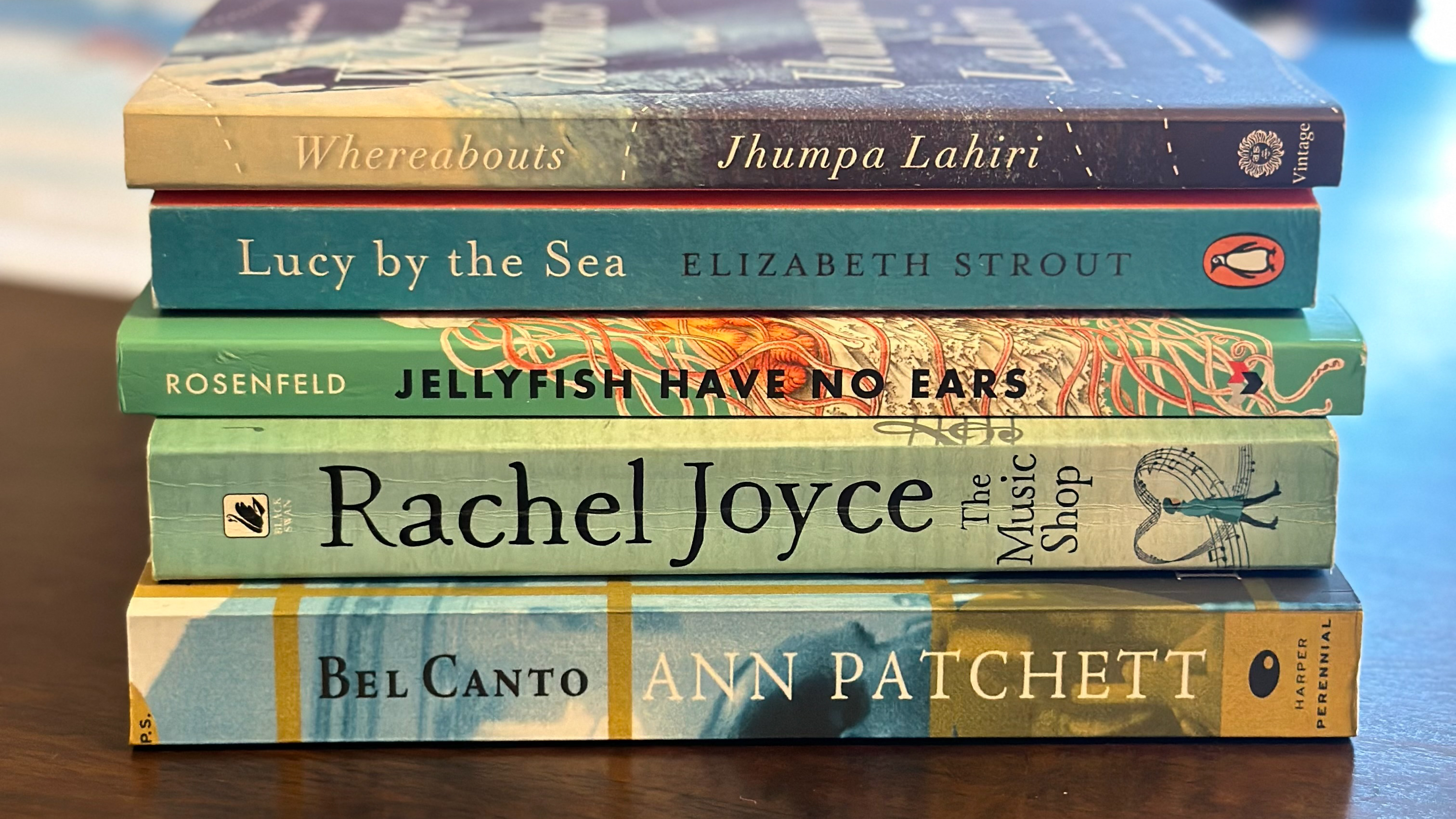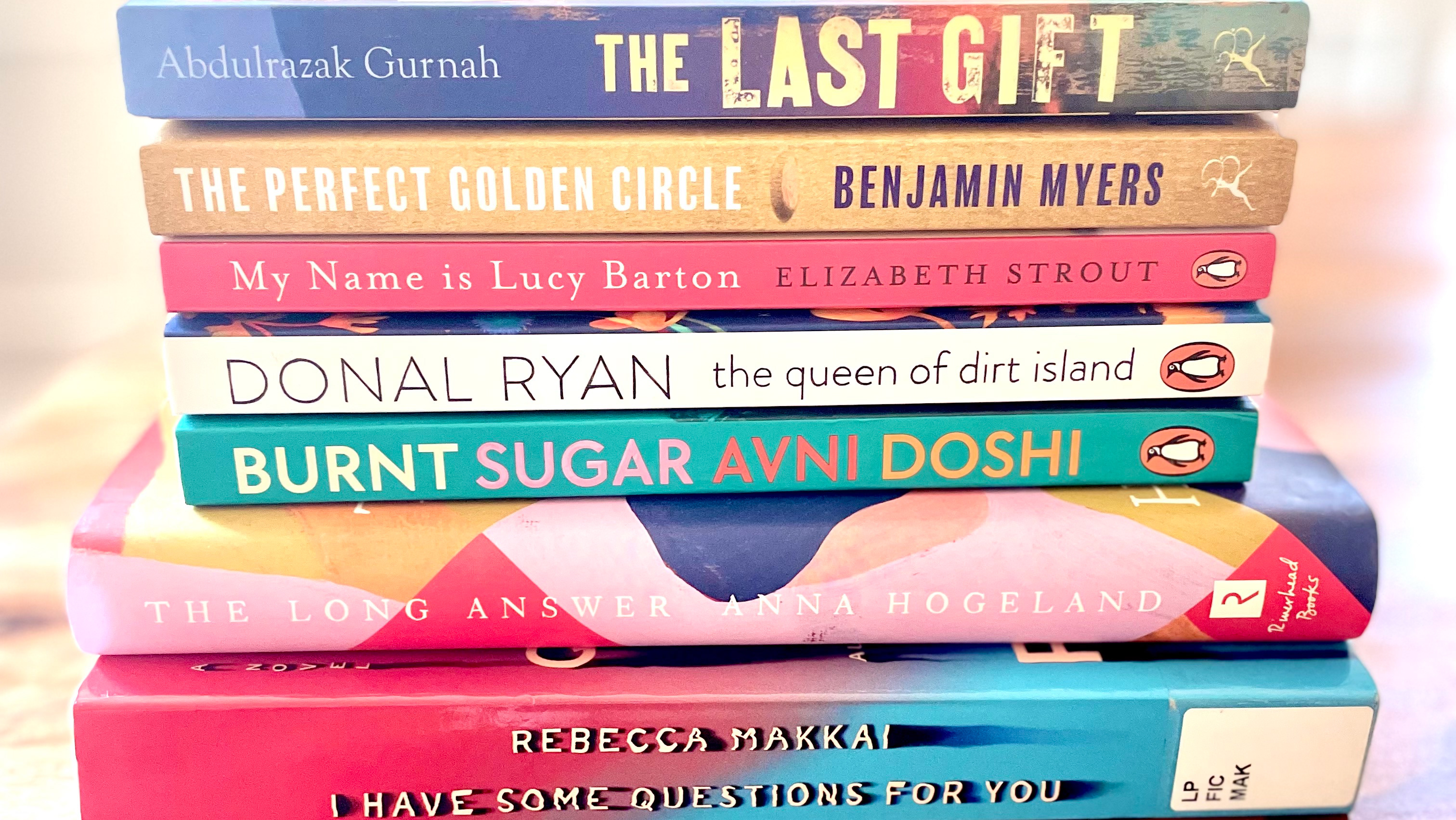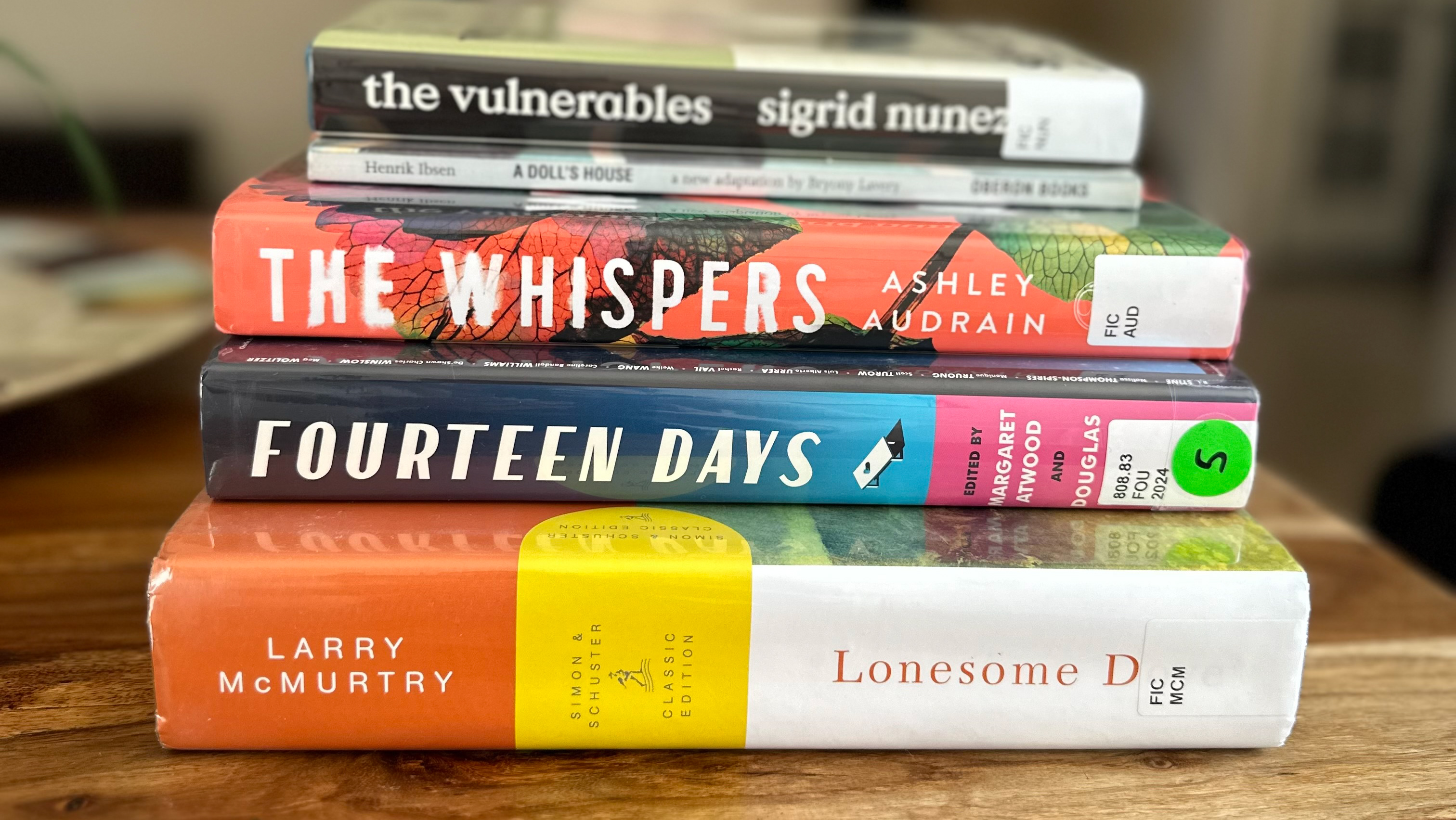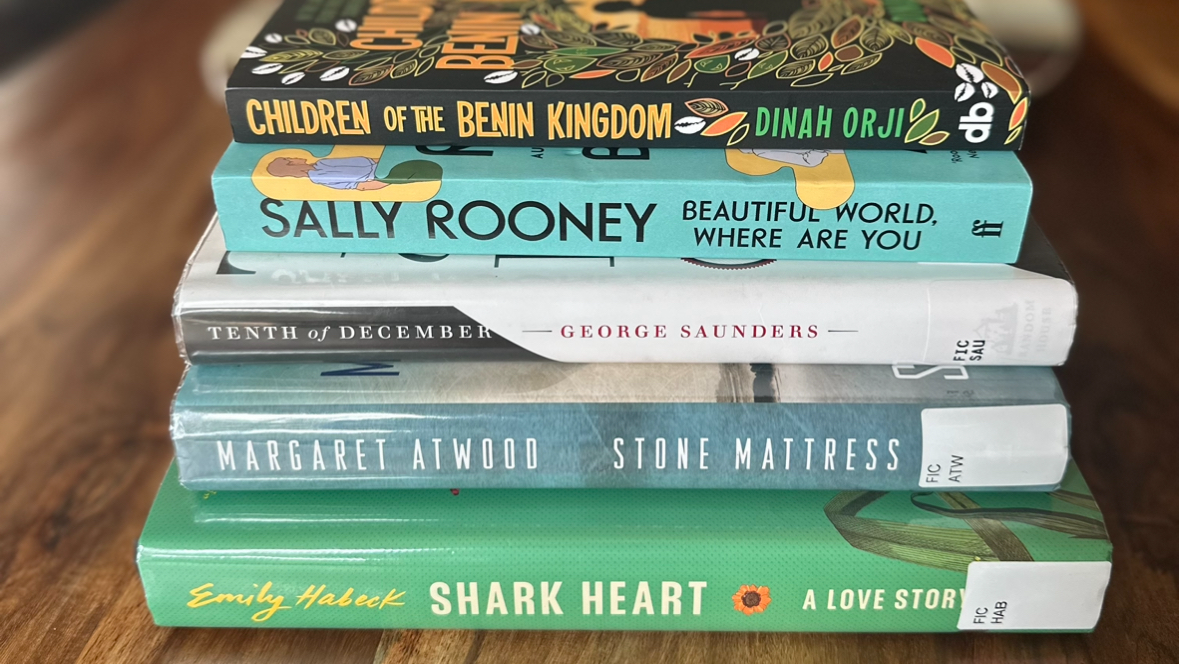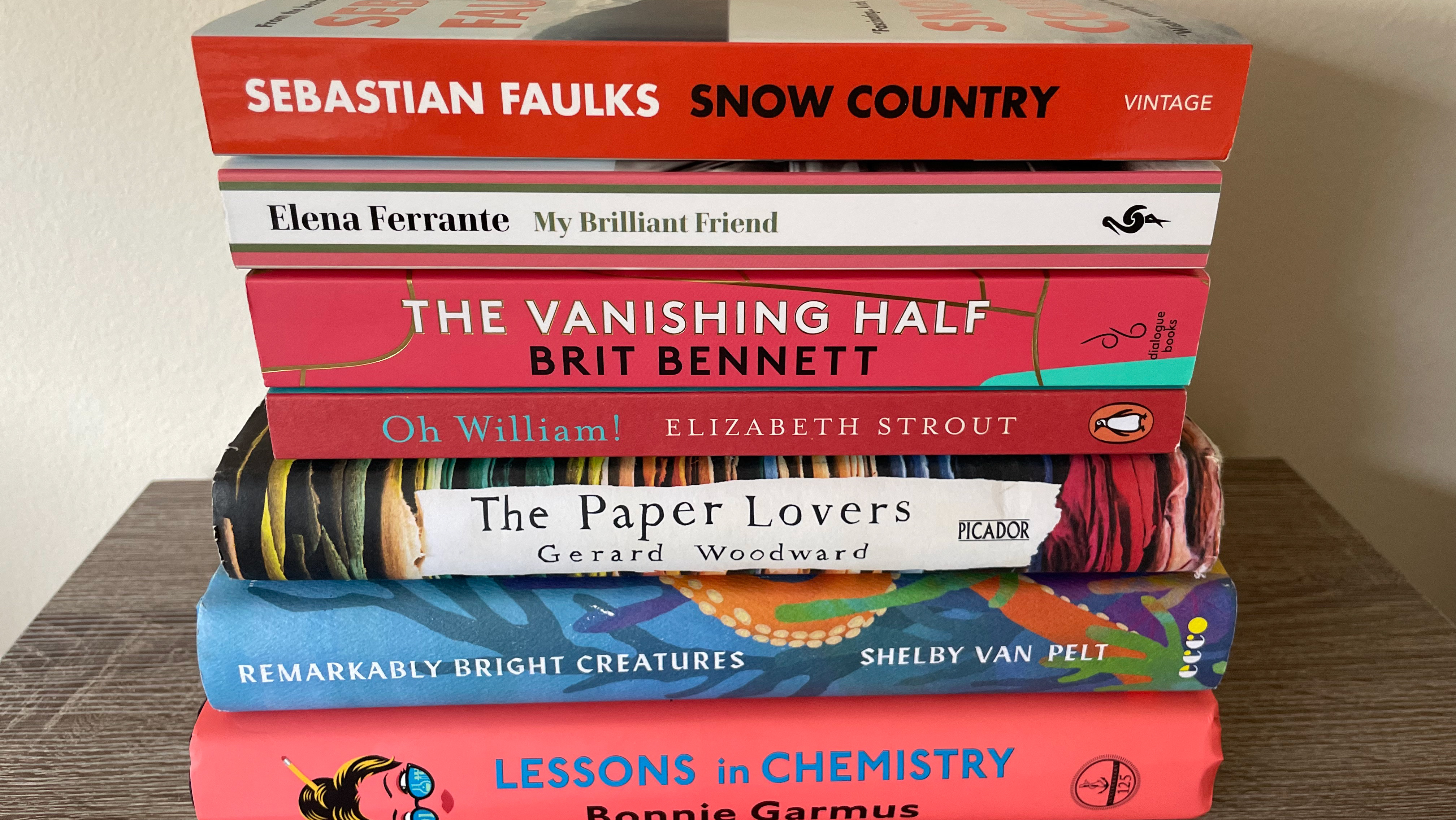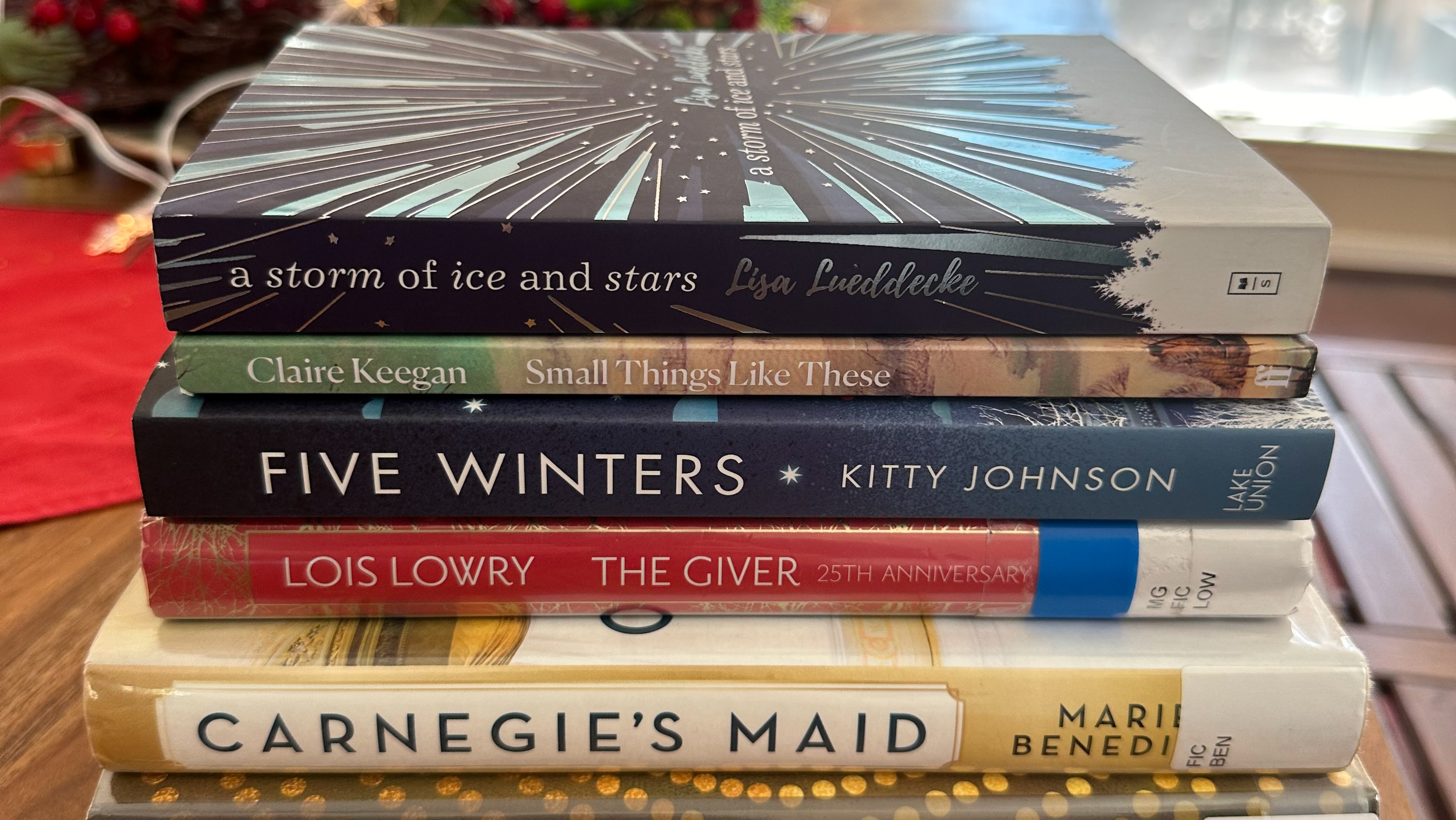Blue Sisters by Coco Mellors
Goodreads Review
First saw Blue Sisters advertised on a billboard outside the English Bookshop in The Hague, in The Netherlands, managed to pick up a copy in Waterstones in Lewes, England and inhaled the story soon after getting back to the US. As many have said: 'captivating', 'positively inhalable', 'instantly compelling'and 'gorgeous'.
Sisters. Sisterhood. Mothering. Responsibility. Roles in a family. Relationships. Grief. Addiction. Distanced families. Family structures. Loyalty. Love. Loss.
This book is incredible. Brimful of poignant aphorisms, Blue Sisters is a novel structured into three narratives. We are presented alternately with the complex and very different lives of Bonnie, Avery and Lucky Blue who are three sisters brought back together on the one year anniversary of their fourth sister Nicky's death. This sad thread of their past lives runs through each of their stories and Mellors gives us an authentic modern take on how grief debilitates families if not faced with a collaborative family force. Each sister has persevered with their independent lives and failed to go through the necessary stages of grieving, instead blaming each other, getting angry with their mother and one another, embracing their addictions, and ultimately breaking down over and over again.
As a Brit who now lives in the US, I cringed at a few of the critical references to the UK and us Brits, not least because the negatively conveyed girls' mother is British. Her thoughts, dialogue and interactions with her daughters appear to be misinterpreted or misunderstood and her character is thus conveyed to be rather cold-hearted. As a reader observing from the outside, I didn't want to blame her for everything, but got the impression that was the expected way of reading.
The description and conjuring up of spaces is fantastic. I was right there with all of these female characters and I could see and empathise with all of them. Each sister has idiosyncrasies and personal character traits and their sisterly interactions are so close to a reality I can imagine.
I am one of three sisters. I'm the eldest. I have four children myself. Older siblings do end up parenting their younger siblings in some way or another at certain points of their lives and often relationships and shared communication of important issues and advice happens between siblings in place of/alongside or in opposition to that of parents. This novel drew me to consider these points. Brilliant literature.
And finally... the ending. Kind of predictable but incredible nonetheless.
US pub date is Sep 3rd 2024
review by Christina Francis-Gilbert
L'Incredibile: Un'esperienza Straordinaria by Alessandro Tebaldi
The central protagonist is an uncomplicated 31-year-old called Paolo, who lives an ordinary life with few friends and little to trouble him. In reaching the final chapters of the novel, I wondered if the character's name may have been chosen for how Tebaldi's style of writing and spiritual storytelling echoes that of Paolo Coelho, as in The Alchemist.
In this carefully structured novel of just 76 pages and six chapters, Paolo is a dreamer. Following the author's chosen epigraph from Sophocles "Solo le anime grandi conoscono quanta gloria c'e nell'essere buoni," in the opening chapter, Paolo daydreams and narrates a travel experience in Jerusalem, which he then dismisses before introducing himself: an only child happy in the love of his parents. Alessandro Tebaldi's meta-style prompts readers to ask themselves if this is the incredible story of the novel, but he then tells us directly that: "in realta e la fine o almeno l'inizio di una fine che prelude a un'altra storia che forse [vi] raccontero in un'altra vita."
As readers we are drawn to Paolo's side and we find ourselves immersed in the beautiful imagery of his mind as he experiences joy from volunteering with and caring for elderly members of his community. We are as surprised as he is when he discovers he has a gift: the ability to break language barriers and communicate with anyone he pleases. He is uncertain but he believes he has a healing power. The story becomes mythical and spiritual. Tebaldi's use of metaphor keeps the language flowing in a mesmerising fashion. Paolo, the independent character of the novel, travels to various places in the world, continuing to be amazed by the possible healing powers he can conjure. It is very much a physical and spiritual journey that takes place.
Listen to the beauty of these descriptions:
"Un manto di colori si spandeva sulla terra, come un arazzo tessuto dalla natura stessa. Le distese di campi rigogliosi si tingevano di sfumatore vivaci: il giallo brillante dei campi di grano maturo, il rosso e il rosa dei papaveri selvatici che dansavano al vento, e il verde tenero delle vigne che si espandevano all'orizzonte."
"A blanket of colors spread over the earth, like a tapestry woven by nature itself. The expanse of lush fields tinged with bright shades: the bright yellow of the ripe wheat fields, the red and pink of the wild poppies blowing in the wind, and the tender green of the vineyards expanding to the horizon."
This novel falls under the Italian literary genre of 'Specchi di Narciso' which for English readers means that the book explores themes of self-reflection and identity, particularly in the context of contemporary society. Inner worlds interact with external realities, often delving into the introspective and narcissistic qualities of characters.
https://www.grausedizioni.it/prodotto/lincredibile-unesperienza-straordinaria/
review by Christina Francis-Gilbert
You Are Here by David Nicholls
Goodreads Review
Marnie and Michael are incompatible with little in common and their independent 'single person' behaviour does not hint of any sort of romance happening. Yet in David Nicholl's novel with a wonderfully simple plot, this duo is hilarious, and obviously destined for each other's arms. Not only are we welcomed to listen and laugh at, maybe with their uncomfortable interactions but readers will also find themselves cheering for lonesome Londoner Marnie and northern 'outdoorsy' Michael to sort themselves out and understand how good they are together.
Back to the wittiness of Nicholl's writing, I did laugh out loud far too many times at some of the hilarious incidents, experiences, and internal thoughts of characters, especially Marnie. When you come to read it, watch out for Crime Scene, which is the chapter that first had me guffawing.
I love how English the novel is and the Geography teacher references are spot on! Everything about this novel is honest, raw, and helpful in highlighting middle age. It's a real, slow-burning love story with a gradual, misinterpreted attraction that draws Michael and Marnie to make certain decisions and surrender some of their independent thinking.
Can I call you my friend @Lucyatkinswriter?! In Lucy's Book Review for The Guardian, April 24, 2024, she notes that Nicholls employs: "skilful dialogue – Marnie and Michael communicate in witty Netflix-ready exchanges – that keeps everything on track," and that "for many, it will be a comforting antidote to the grimness of our grim world, a crowd-pleaser and, surely, a TV hit-to-be." Exactly that. I also agree that lovable Michael is from the same ilk as Douglas from Nicholls' previous novel 'Us'.
It's worth reading about further details of the plot and elements of the story in Lucy Atkins' review at The Guardian.
review by Christina Francis-Gilbert
Day by Michael Cunningham
Three consecutive years charting a family's relationships and understanding of each other during the pandemic, which is not mentioned but alluded to. It's a stunning recollection of those years 2019, 2020 and 2021 when we learned so much, without realising, of those we thought we knew. Cunningham has honed in on the real impact that such a contemporary unique experience has had on all levels human existence.
The novel is structured by the seasons of the day, the first section April 5, 2019 Morning, the mid section April 5, 20210 Afternoon and the final section April 5, 2021 Evening.
The 'cosy brownstone in Brooklyn' is a wonderful character in its own right as we are introduced to the domestic living arrangements of Isabel, Dan, their children Violet and Nathan, as well as Isabel's brother Robbie. He is the soul of the family, who lives in the attic but we learn needs to move out. He is the charismatic uncle to Violet and the pivot through which Isabel and Dan try to retain their marital relationship. They are 'slowly drifting apart – and both, it seems, are a little bit in love with Robbie.'
There is a lot in this novel that appears weird, such as Robbie's created online presence which Isabel helps to sustain on Instagram too. It's weird but strangely also very understandable. Cunningham has managed to grasp how surreal those years were for all of us. He has crafted a perfect resonating family tale of 'love and loss, the struggles and limitations of [family] life – and how we must learn to live together and apart.'
Highly recommended 5* read for me.
review by Christina Francis-Gilbert
Windmill Hill by Lucy Atkins
Coincidental but perfect that I read this emotional mystery puzzle whilst staying in the exact location of much of the story. The South
Downs, a range of chalk hills that span villages like Lewes and the atmospheric backdrop for Lucy Atkins' central character Astrid and her windmill and cottage are so beautifully described. The British landscape, its seasonal weather and emotive setting match the tumult of Astrid and her unsettled state of mind. She is an elderly character we immediately want to support in her ambitious determination to travel to Edinburgh to stop her ex-husband from exposing in his death-bed memoir the details of an incident that would ruin her broken theatre career even further.
Downs, a range of chalk hills that span villages like Lewes and the atmospheric backdrop for Lucy Atkins' central character Astrid and her windmill and cottage are so beautifully described. The British landscape, its seasonal weather and emotive setting match the tumult of Astrid and her unsettled state of mind. She is an elderly character we immediately want to support in her ambitious determination to travel to Edinburgh to stop her ex-husband from exposing in his death-bed memoir the details of an incident that would ruin her broken theatre career even further.
The story is driven by backstory memories and anecdotes from Astrid's past but also an epistolary connection to a Constance Battiscombe who was a Bloomsbury creative who once loved the windmill as much as Astrid. We learn from the letters to her husband Walter, away at sea that she filled the windmill's weird construction (secret tunnels and all) with frivolous frowned-upon druid parties.
The dogs are also central to the stories and provide additional humour, in incidents such as their names of Gordon, Juniper and Hendriks, the fact that one of them ate both of Astrid's hearing aids and the strange contraptions within the windmill constructed to move the dachshunds from one level to the next.
My interest in the Bloomsbury group of literary creatives has been inspired by reading this novel and I feel there are numerous hints to further details and history from this time that I missed. Some weird elements I feel I may understand better once I have explored the Bloomsbury artists further.
A truly fun and mysteriously majestic and mystical novel with some delightful but also weird characters. Thank you again @lucyatkinswriter for my signed copy!
review by Christina Francis-Gilbert

